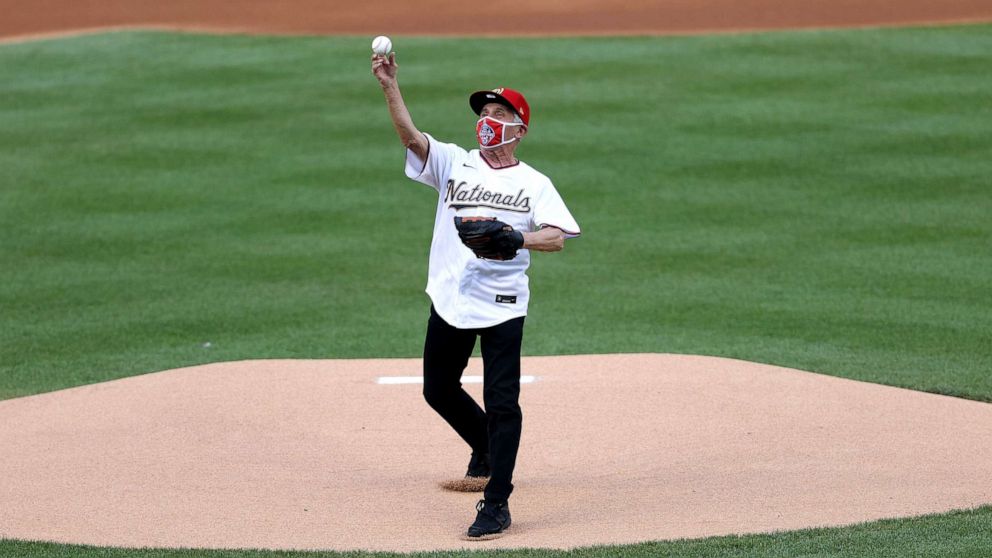On baseball's opening day, amid pandemic, Fauci throws 1st pitch for Washington Nationals
It's time again to "Play ball!" -- but this year, amid a pandemic.
On Thursday, MLB finally returned to the field, and all eyes were on the defending World Champions – the Washington Nationals.
Since the season was shortened due to the coronavirus crisis, it's perhaps only fitting that the ceremonial first pitch was thrown out by none other than Dr. Anthony Fauci, a huge Nationals fan besides being the nation's leading infectious disease expert.
"I'm quite nervous about it," Fauci told the Washington Nationals' Ryan Zimmerman, who is sitting out the season for safety reasons, citing the virus.
"OK, well don't worry about it," Zimmerman responded in a tweeted video. "If you bounce it, there's nobody there to boo you. So, you'll be good to go."
Fauci did in fact throw it well outside and in the dirt. But then again, three-time Cy Young winner Max Scherzer allowed a two-run homer to Giancarlo Stanton in the first, so everyone on the mound struggled a bit early.
President Donald Trump announced during his coronavirus briefing on Thursday that he will throw out the first pitch -- for the first time in his presidency -- at Yankee Stadium on Aug. 15.
Later, Trump and Yankees pitching legend Mariano Rivera joined a team of Little League players on the White House’s South Lawn to mark MLB’s opening day.
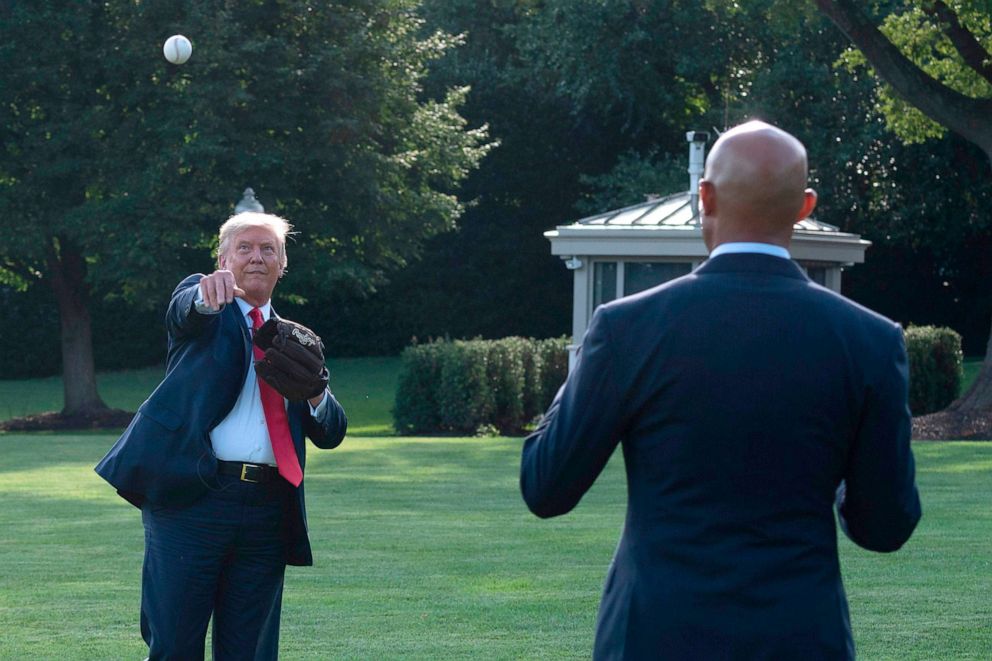
On Thursday afternoon, ESPN reported Nationals star outfielders Juan Soto had tested positive for COVID-19 and would not play in the evening's season opener.
As the coronavirus continues to spread across the country and 39 states plus the District of Columbia and Puerto Rico are reporting an increase in positive cases, America's pastime returns to completely empty stadiums, cardboard cutouts as spectators, piped-in sound effects to mimic crowd noise, masked players, and pitchers with personal rosin bags.
Opening day comes after months of talks between team owners and the players union. The players -- paid by the game -- wanted more games since their salaries were already reduced due to the shorter season, and owners wanted fewer games to keep costs down. Neither side could agree, so MLB Commissioner Rob Manfred imposed a shortened season consisting of 60 games, compared to the regular 162.
There are other changes, too. Games will be played against regional teams to limit travel. If a game goes past nine innings, a runner will start on second base in the extra innings to try to speed things up. And to limit community spread, fans will not be allowed in stadiums – so fans will have to watch their teams on television.
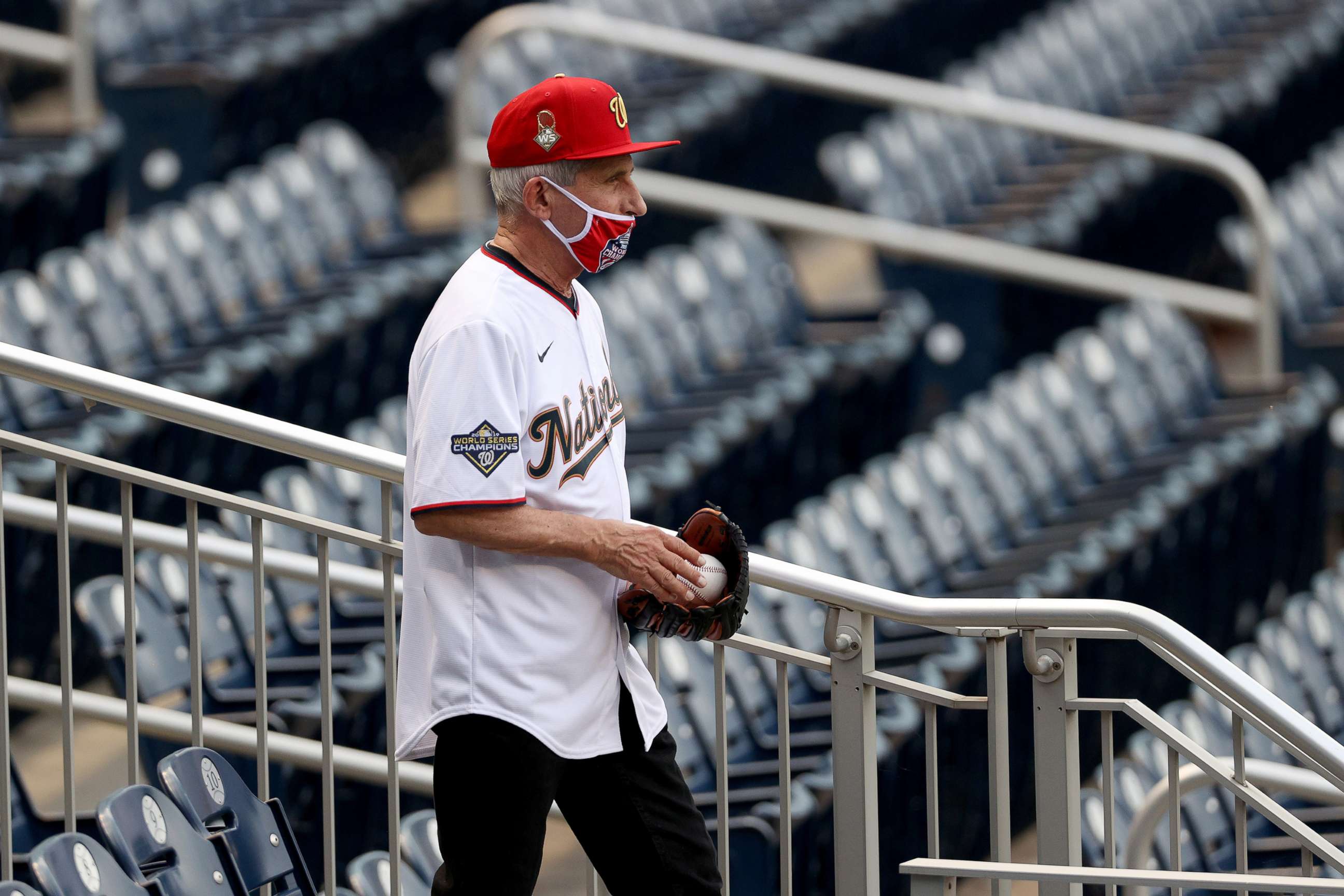
On Thursday, the Nationals play the New York Yankees in Washington, D.C. In the West, the San Francisco Giants will be playing the Los Angeles Dodgers. On Friday, the Braves will be playing the Mets, the Brewers against the Cubs, and the Angels versus the Athletics.
Normally, the baseball season is a marathon. But this year, it's a sprint. The shortened season could pose a problem for teams that start slow. Last year, after 50 games, the Nationals were 19-31. And yet with the longer season, they were able to come back and win it all.
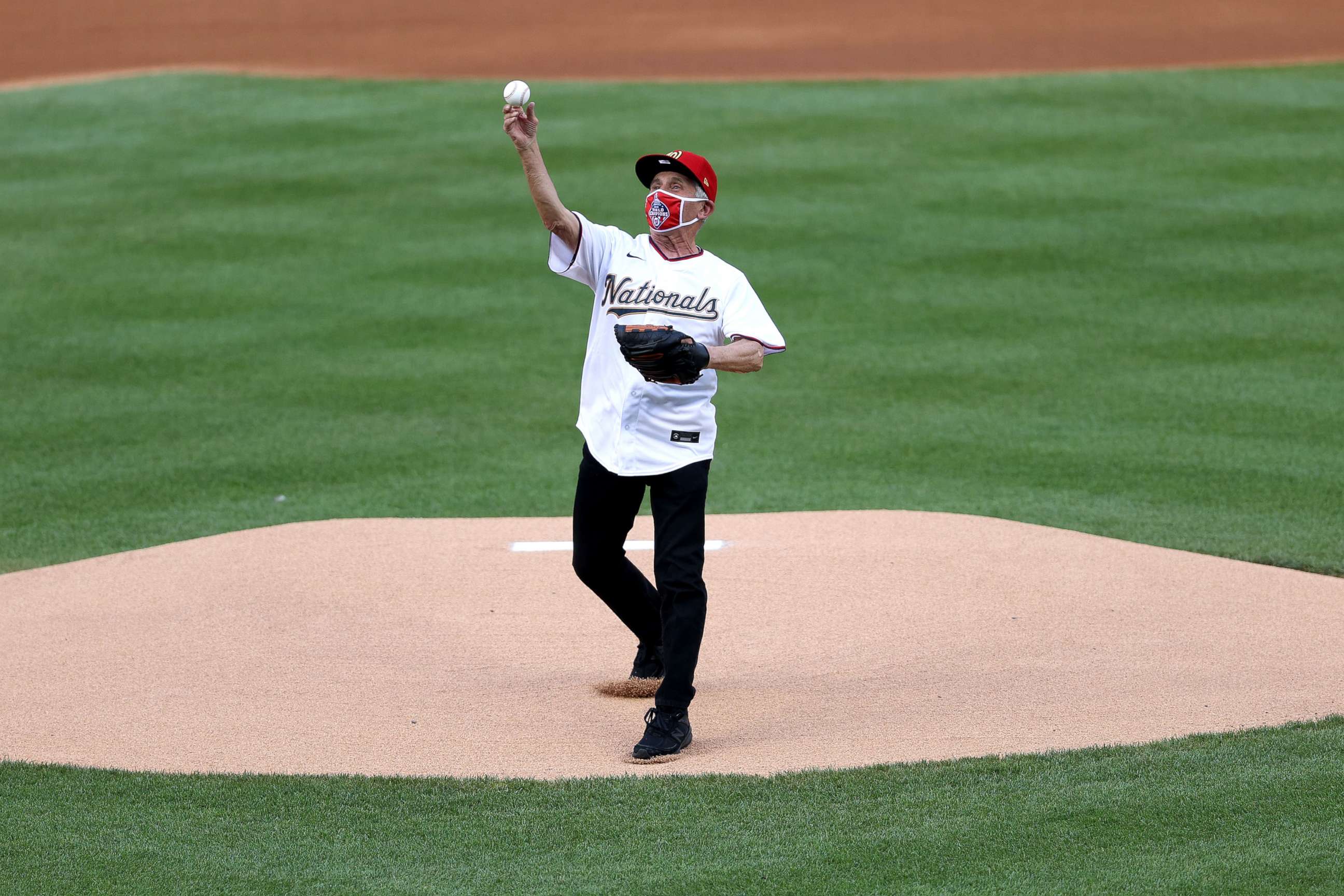
Due to the coronavirus, some key players on the Nationals have opted out of the season citing health concerns, including Zimmerman.
"I cannot speak for anyone else, but given the unusual nature of the season, this is the best decision for me and my family," Zimmerman, the team's usual first baseman, said in a statement released by his agents, "and I truly appreciate the organization's understanding and support."
Zimmerman, who has been with the team since 2005, made the difficult decision because he has three young children and a mother who is high-risk due to multiple sclerosis. Joe Ross has also opted out, citing personal health and the safety of his family.
"We are one hundred percent supportive of their decision not to play this year," general manager Mike Rizzo confirmed in a statement. "We will miss their presence in the clubhouse and their contributions on the field."
Spring training began on July 1 – a little over a month after George Floyd was killed by Minneapolis police officers and protests across the nation erupted. During pre-season games, players and managers have taken a knee during the national anthem, following in the footsteps of Collin Kaepernick calling for the end of police brutality against African Americans.
Earlier this week, President Trump tweeted that he's "looking forward to live sports" but if a player kneels "the game is over for [him]."
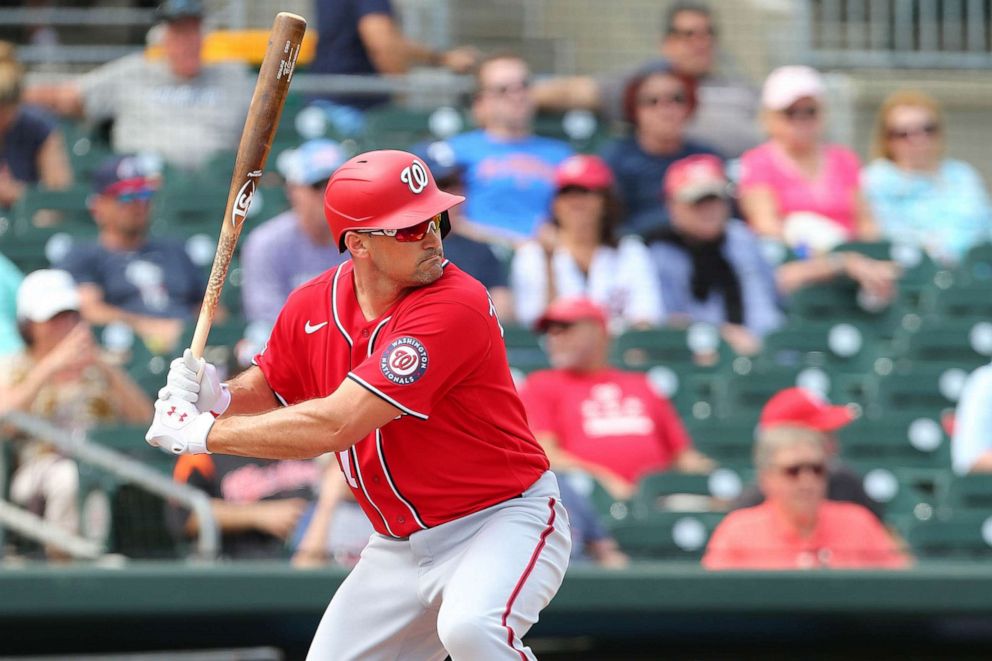
"I see nothing more American than standing up for what you believe in," San Francisco Giants Manager Gabe Kapler told USA Today. "I see nothing more patriotic than peaceful protests when things are frustrating and upsetting."
While cases continue to climb by the tens of thousands, Trump said "the virus will disappear. It will disappear," during a press conference on Wednesday. But there is no evidence to suggest the virus will disappear.
National Institutes of Health Director Francis Collins told ABC's Bob Woodruff in an interview on Monday, "I don't think that this particular virus is going to disappear from the planet."
On the eve of his first pitch, Fauci said a similar statement, saying he doesn't see any particular end of the virus in sight.
"We are certainly not at the end of the game," Fauci said about the pandemic. "I'm not even sure we're halfway through… but certainly we are not winning the game right now."
ABC News' Ben Gittleson contributed to this report.
